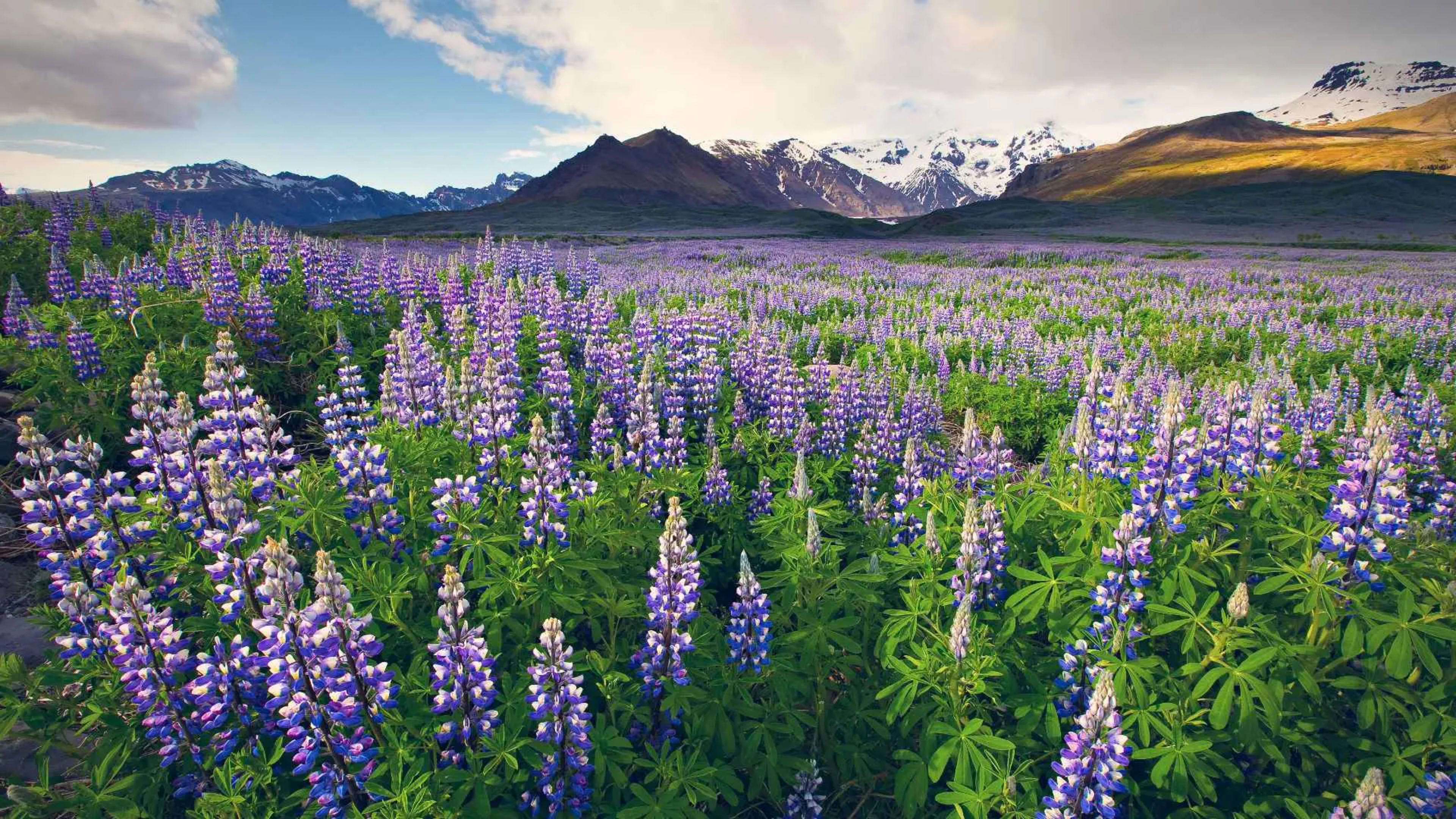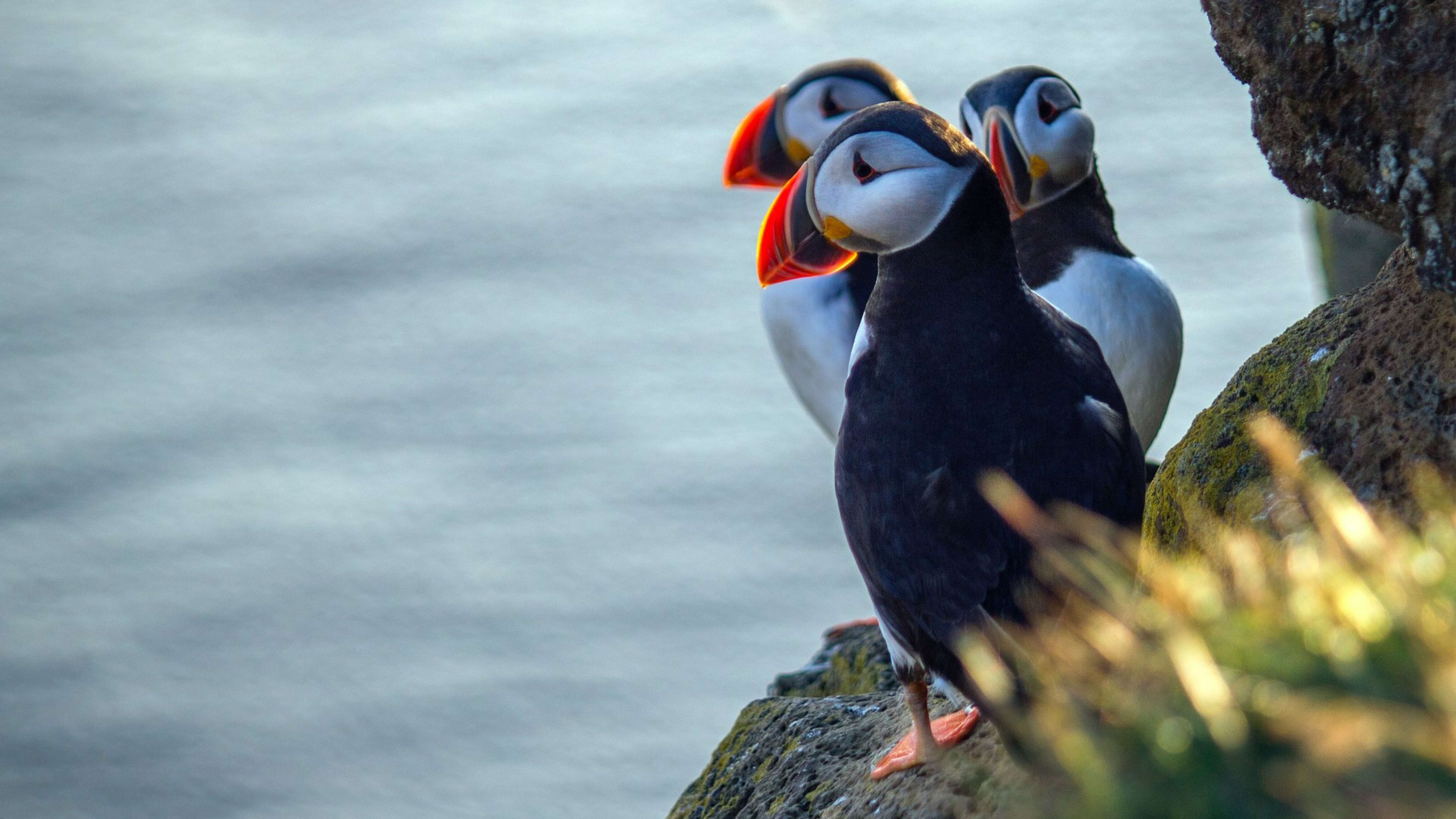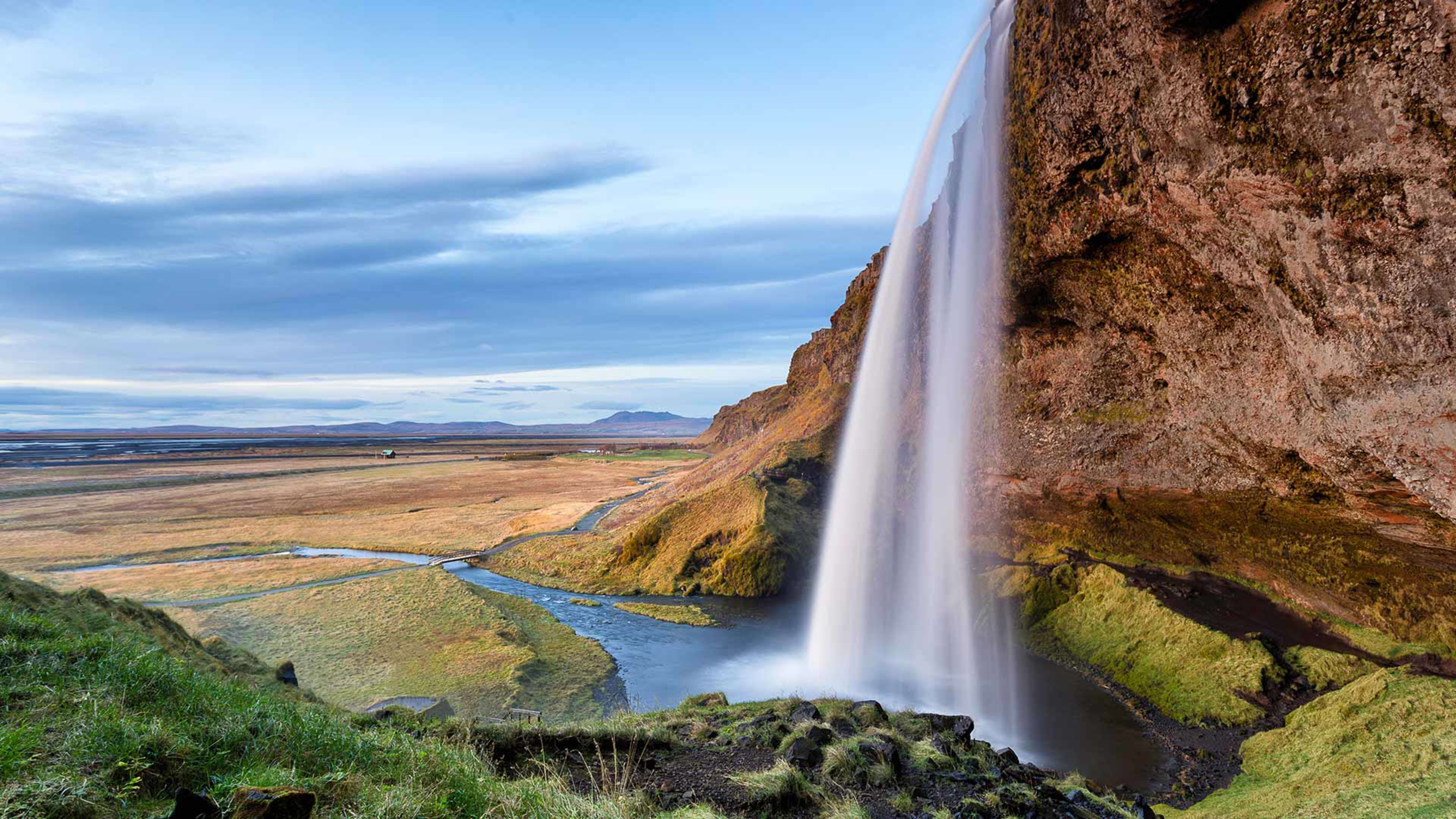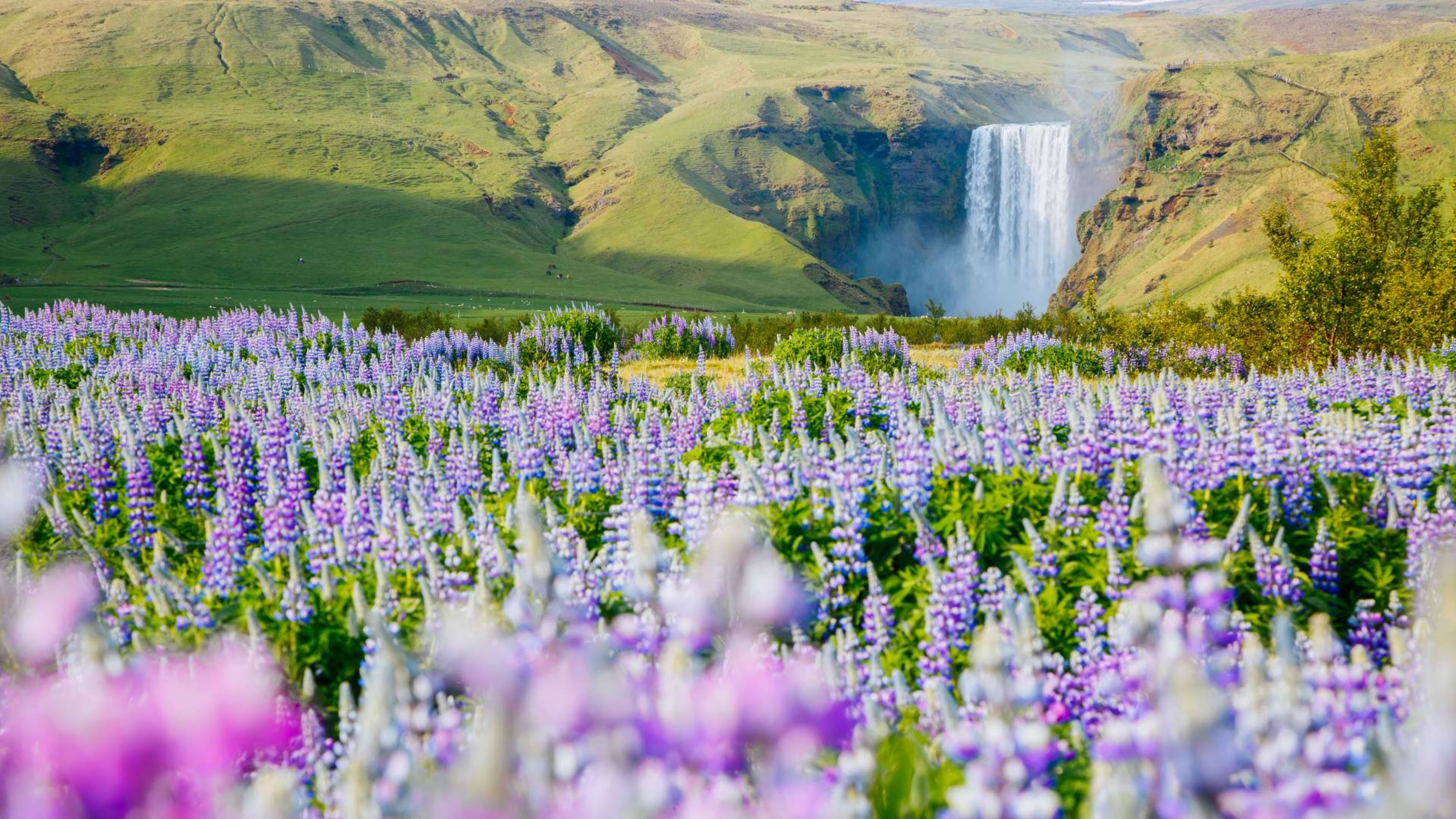Visit Iceland in spring and you’ll experience a season of beauty and change. At this time of year, the winter snows are retreating and color is returning to the landscape. You could glimpse the Northern Lights before the nights get too short. And with the summer visitors yet to arrive, you’ll have more of this paradise to yourself.
For those in the know, spring in Iceland is one of the best times to visit. Read on to find out more about how to get the most out of this season.
- Start your adventure with these spring and summer vacation packages in Iceland.

When does spring start in Iceland?
Spring in Iceland typically begins in April, when average temperatures rise and the snows start to melt. And while there’s no exact date for spring kicking off, you can feel when winter in Iceland is coming to an end. You’ll notice there’s more wildlife around and the land becomes greener.
Traditionally, the start of spring is marked by the arrival of the golden plover, a bird that makes Iceland its home over summer. Throughout the winter, they’re found further south, but you’re likely to see them arriving in Iceland by the end of March.
For many Icelanders, it’s not spring until they’ve seen a golden plover. If you’re visiting at this time of year, listen out for their distinctive call.
- Related: Things to see and do in Iceland in April and May.

When is spring in Iceland?
There’s no specifically defined springtime in Iceland. But April and May are considered the months of spring. It’s worth bearing in mind that this short season can begin earlier and end later, depending on the weather.
That said, according to Iceland’s old Norse calendar, you’ll see there was a time when the locals didn’t recognize spring at all. Instead, the calendar had only 2 seasons – summer and winter – each lasting 6 months. In this tradition, summer would start at the end of April.
These days, if you’re in Iceland in April, you might catch Sumardagurinn fyrsti, the national holiday to celebrate the first day of summer. It’s held on the first Thursday after 18 April.

Why visit Iceland in spring?
While spring is a shoulder season in Iceland, it really is one of the best times of year to visit. Read on to discover 5 reasons why.
1. Be there for the wildlife-watching season kicking off
If you’re hoping to glimpse some of Iceland’s wildlife, then spring is an ideal time to come. You could spot whales, puffins, Arctic foxes, and other creatures throughout April and May.
In fact, Iceland’s waters are home to as many as 12 different species of whale. While they usually head south to warmer waters in winter, most have come back to Iceland by spring.
What’s more, late April to May sees the return of puffins to Icelandic shores. To watch them fishing, book a boat tour or head for their favorite ocean cliffs, such as Dyrhólaey on the south coast.
- Related: Best places to see puffins in Iceland.

2. Explore with fewer other visitors around
During spring, you can soak up the thrills of Iceland at a quieter, calmer pace, compared to the summer months. While it never gets very busy even during summer, in spring it’ll feel like you have the countryside to yourself.
Because of this, spring can be a good time for a road trip around Iceland on Route 1 (also known as the Ring Road), which takes you around the entire country. In spring there’s less traffic, and with snow and ice melting, the road conditions are easier than in winter. So why not buckle up and head off on an adventure?
Or you could take the opportunity to go on a tour of the Golden Circle, one of Iceland’s most popular sightseeing routes. This time of year is perfect for snapping the must-see Geysir geothermal area, Gullfoss waterfall, and Þingvellir National Park with fewer people about.
- Find out more with this guide to driving in Iceland.
- Related: Iceland in the fall – Your guide.

3. Enjoy longer days and better weather
While visiting Iceland in winter does offer more opportunities for chasing the Northern Lights, the flipside is shorter days. In December, for example, Reykjavík gets less than 5 hours of daylight each day.
Come spring, the extra daylight gives you more time for exploring Iceland’s natural wonders.
Take advantage of these longer days for soaking up the breathtaking scenery or enjoying outdoor activities like hiking. You could even have a sunset dip in the warm waters of the Sky Lagoon, overlooking the North Atlantic Ocean.
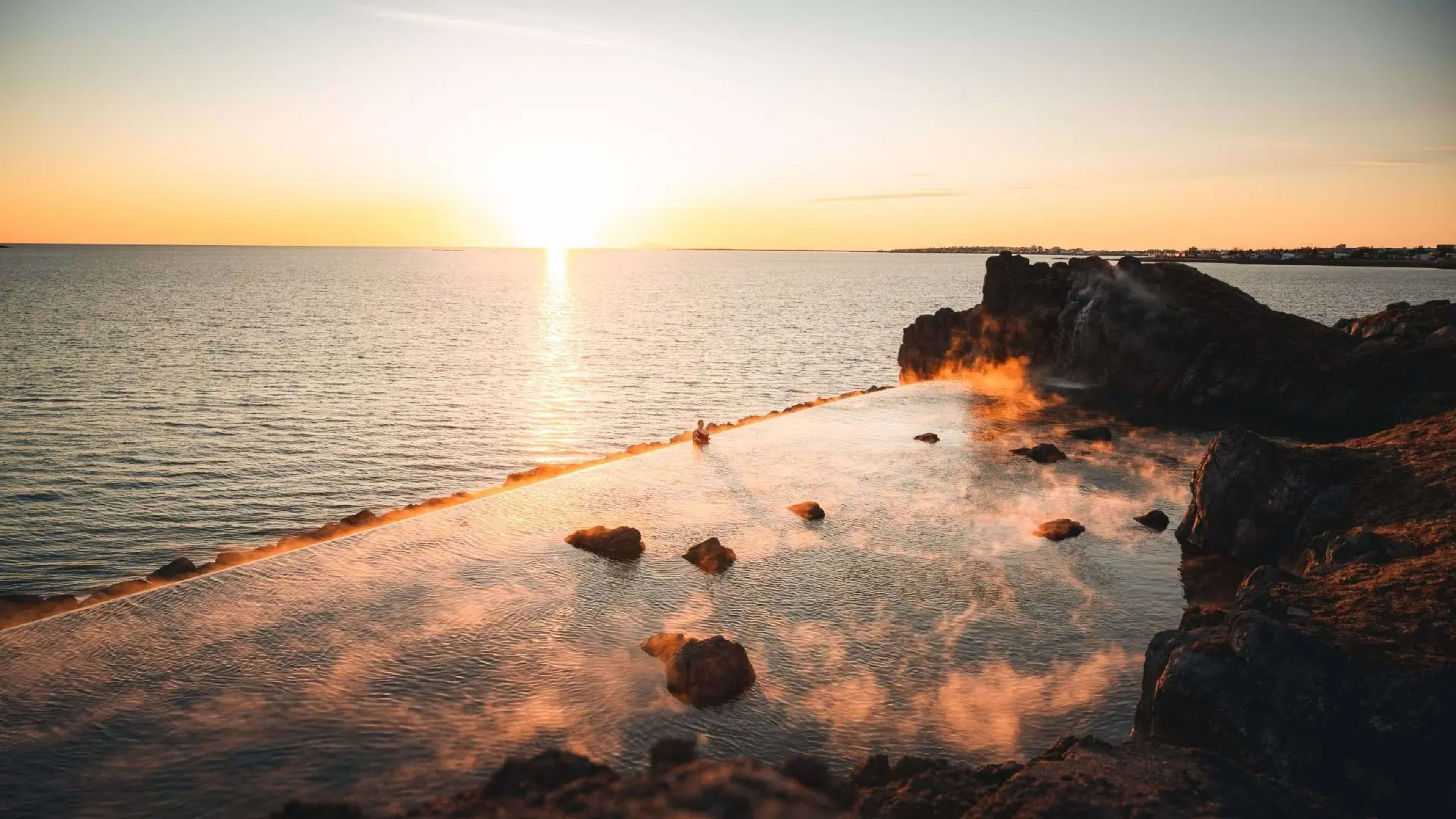
4. Venture into the outdoors
In spring, average temperatures are on the rise and melting snow means that many highland roads are starting to open.
By mid-April, you’ll find that most of the country roads tend to be accessible, except in the central highlands. This means that there are more opportunities for heading off the beaten path to uncover hidden gems, such as secluded hot springs.
So wrap up warm, pack a snack (just in case!), and explore Iceland’s incredible national parks and network of hiking trails. You’ll be amazed by what you find!
- Check out these active tour packages in Iceland for inspiration.
- Related: 13 awesome things to do in Iceland.

5. See the Northern Lights outside of winter
There’s no doubt that winter – October to March – is the best time to see the Northern Lights in Iceland. But as you might discover if you visit in spring, it’s not the only time. To witness this spectacular show, you’ll need dark, clear skies, and the right solar activity.
The sun starts to set later in April, between 8:00 p.m. and 10:00 p.m. in Reykjavík. But you could still catch this mind-blowing sight if the conditions come together and you’re happy to stay up late.
- Opt for a Northern Lights tour package to improve your chances of seeing the aurora.
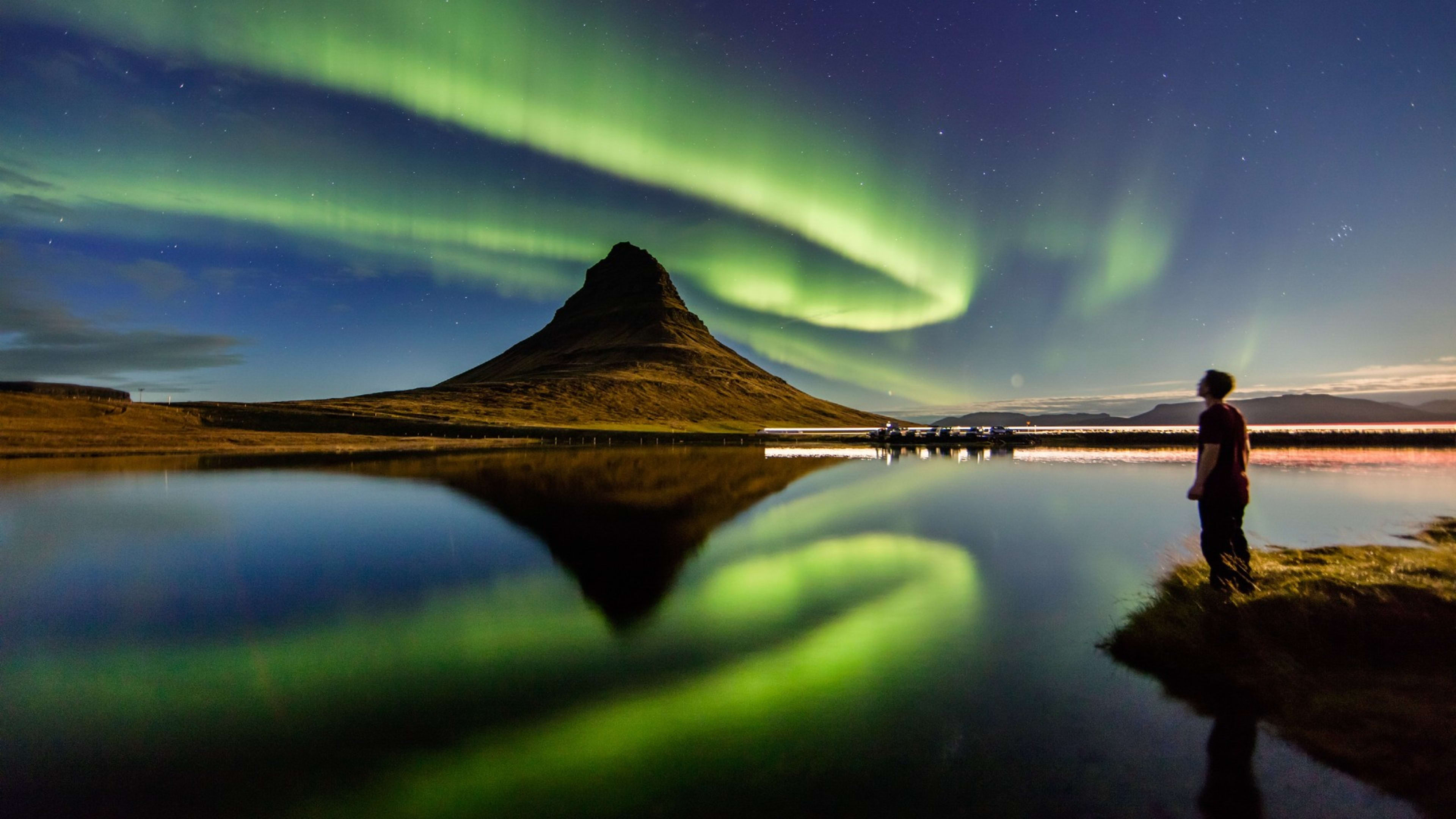
What’s the weather like during spring in Iceland?
Spring brings milder weather, and most of winter’s storms will have passed. In fact, late spring to early summer – May and June – is often the driest time of year in Iceland.
That said, you could experience any type of weather throughout Iceland’s spring. For instance, it’ll still be chilly, and it could even snow, particularly in the highlands or the far north. So you’ll want to come prepared for different weather conditions.
- Get more information on what to expect in this guide to the weather in Iceland.

What should I pack for Iceland in spring?
What you bring with you when you travel to Iceland depends on what activities you’ve got planned for your stay.
That said, some things are a must no matter what you’re planning. These include thermal layers, hiking shoes with good grip, and a waterproof jacket and pants.
If you’re joining an excursion booked by Iceland Tours that needs specialist gear, this will be supplied for you. For example, on a glacier hike, harnesses, crampons, and other safety equipment are included. So you don’t need to worry about bringing these with you.
Don’t forget your camera and other year-round travel essentials, such as chargers, adapters, and toiletries.
- Related: Iceland in summer vs winter.
What should I wear in Iceland in spring?
Spring in Iceland is a time when you should be prepared for any weather. As the saying goes, you could experience every season in a day.
This means it’s smart to dress in layers, so you stay warm but can take things off if you get too hot. Make sure to always have your waterproofs with you, particularly if you’re hiking or going on a boat tour.
For any outdoor excursions, we always recommend comfortable shoes for walking. Weatherproof ones with a grippy sole are best. They’ll make life easier when you’re out and about visiting Iceland’s beautiful natural sights.
- Get more helpful tips in this Iceland packing guide.

Visit Iceland in spring with Iceland Tours
With so many things to see and do in Iceland in spring, why not choose this time of year for your trip? Book with Iceland Tours and you’ll enjoy an authentic travel experience, organized by local experts.
If you like to go at your pace, then an Icelandic self-drive package, complete with a route map and sightseeing recommendations, could be for you.
Want to explore with a group of like-minded travelers instead? In that case, check out these guided group tours of Iceland.
Or why not go for a multi-day trip based in Reykjavík? This way, you can soak up city life in the capital and make the most of venturing into the surrounding nature on day tours.
What’s more, you can personalize our travel packages by adding extra nights and handpicked activities.
No matter what time of year you decide to visit Iceland, we’ll arrange your accommodation, transport, and any excursions. And all it takes to secure your booking is a 5% deposit.

